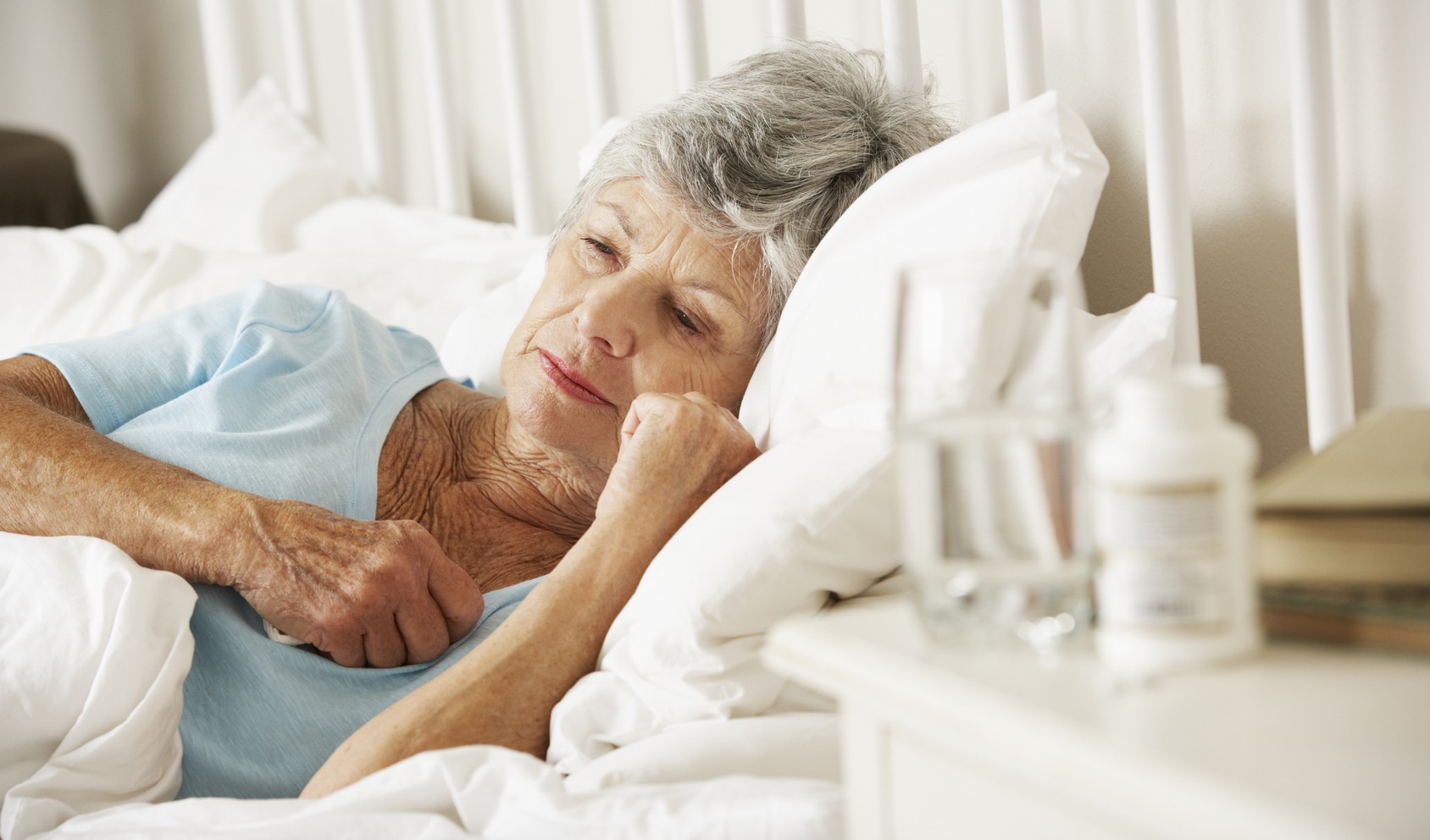SIZE
A good night’s sleep can be elusive during senior living: What to do about it
Changing sleep patterns can be an unwelcome part of getting older. They may be minor annoyances—say, falling asleep sooner or waking up earlier—to which we adjust, or major disruptions—disturbed nighttime sleep or daytime sleepiness—that may indicate an illness or a medical condition.
Everyone should take insomnia or other sleep disorders seriously because lack of sleep can lead to a host of health-care issues. These include cardiac problems, high blood pressure, stroke, diabetes, cognitive impairment, depression, aging of skin, weight gain and accidents.
What causes sleep problems in the first place? They have a number of root causes, but the most common, according to WebMD.com, are:
• Illnesses – Some conditions, e.g., arthritis, sleep apnea and restless legs syndrome, affect sleep.
• Medications – An alternative medication or a different dosage may be in order.
• Change – Major transitions (illness, financial issues or a death) can be stressful and affect sleep.
• Retirement – If more downtime leads to less activity, it can throw off your sleep-wake schedule.
At Ecumenical Retirement Community in Harrisburg, PA, we take the value of a good night’s sleep seriously. If our residents, in either independent living or personal care, can’t resolve sleep-related difficulties, we suggest they discuss them with their physician. First, though, here are a few tips for seniors whose previous attempts at getting restful sleep have not been successful:
• Maintain a regular bedtime – Go to sleep and wake up at the same times every day.
• Take a warm bath – It may help you feel tired, slow down and relax.
• Unplug before bedtime – Turn off TV and electronic devices at least an hour before bedtime.
• Don’t drink alcohol and caffeine near bedtime – Even small amounts can disrupt nighttime sleep.
• Drink less liquid in the evening – Trips to the bathroom will interrupt your sleep.
• Wear yourself out – Exercise regularly but not within three hours of bedtime.
A few more tips: keep your bedroom quiet, dark and cool; don’t eat meals before bedtime (a light snack is fine); get daytime aerobic exercise and try relaxation techniques (read a book, listen to soothing music, release the stress of worries by writing them down before bedtime).
If you’re contemplating a move to a retirement community in central Pennsylvania, we hope you will contact us to learn more about Ecumenical Retirement Community. We would be glad to show you our senior apartments and introduce you to our independent living community or our personal care home services (referred to by some as an assisted living facility). If you have health care concerns and are considering a nursing home (skilled nursing facility) in Harrisburg PA for rehabilitation support, you may find that our physical support program can meet your current needs just as well. We look forward to meeting with you.
Categories:
- All
- Alzheimer's
- Assisted Living
- Blood Drive
- car wash
- caregiver
- Community Blood Drive
- community event
- Comparing Retirement Community Costs
- dementia
- dining
- donate
- donations
- easter
- easter bunny
- easter egg hunt
- ecumenical
- exercise
- family
- Family Community Event
- For Adult Children
- grace
- Grandparents Day
- health
- holiday season
- Holidays
- Independent Living
- Kids Event
- Memory Care
- moving to a retirement community
- Personal Care
- pets
- retirement community
- retirement home
- Safety
- social activities
- the longest day
- trial stay


Leave a Reply